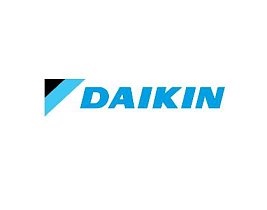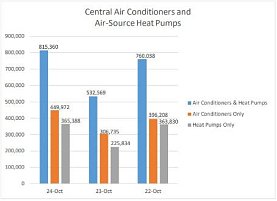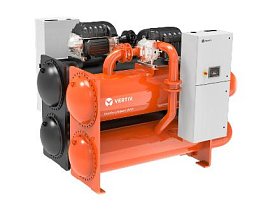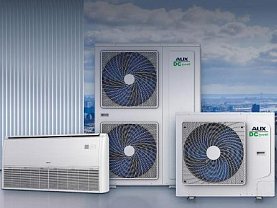
METUS accepted its award for Best Energy Efficient Product
Mitsubishi Electric Trane HVAC US (METUS), the exclusive provider of Zoned Comfort Solutions and a supplier of Variable Refrigerant Flow (VRF) heating and cooling systems, has been awarded a National Association of Home Builders’ (NAHB) 2018 Global Innovation Award for its MLZ One-Way Ceiling Cassette in the Best Energy Efficient Product category.
For the past four years, the NAHB Global Innovation Awards have recognized the most cutting-edge, advanced or original product offerings and marketing strategies in the home building industry. NAHB established the awards to showcase these innovative products and encourage future innovation. This year, awards were given in three categories: internal products, external products and technology/ education.
METUS accepted its award for Best Energy Efficient Product during the 2019 International Builders’ Show (IBS) held February 19 -21, 2019 in Las Vegas. Judges chose award winners based on the following criteria: innovation, functionality, good design, builder/consumer friendly, sustainability and unique marketing approach.
“We’re honored to receive this product award for Best Energy Efficient Product,” said Steve Scarbrough, senior director of residential business for Mitsubishi Electric Trane HVAC US. “This award, like the MLZ itself, is a testament to our continued commitment to be a leading supplier of innovative HVAC products delivering superior efficiency and comfort for every home or building.”
The MLZ One-Way Ceiling Cassette features a sleek, narrow-body ceiling-cassette design. Designed to fit between standard 16" joist spacing, the MLZ is a standout in terms of installation and ease of maintenance. The unit can be serviced from below without an access panel and can be used in both existing home retrofits and new home construction. The MLZ indoor unit is used in connection with a Mitsubishi Electric outdoor unit with an INVERTER-driven compressor. This advancement has transformed the HVAC industry by providing temperature regulation at a fraction of the energy normally required and is up to 40 percent more efficient than traditional heating and cooling systems.
Related News









